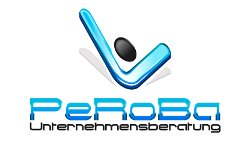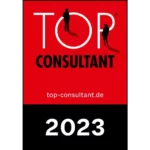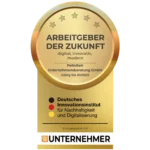New Year’s changes
Changes effective from 2025: revisions of ISO 9001 and of other standards
– this is what companies need to know –
Companies will be faced with new challenges and opportunities worldwide due to revisions of ISO 9001 and of other relevant standards, causing changes effective from 2025. These modifications are aimed at supporting companies in adjusting to changing global market conditions and requirements on sustainability and technology. In the following, we will provide you with an overview of relevant changes and their impacts on quality management.
- Sustainability and climate impacts: A focus on ESG
An intensified focus on environmental, social, and governance (ESG) aspects will be a significant part of the standard revisions effective from 2025. Companies will not only need to provide evidence on how they will improve the quality of their products and services, but also on how they will contribute to social responsibility and ecological awareness. This means that the issue of sustainability will have to be incorporated as a central part of quality management systems (QMS). Companies will need to take measures in order to reduce their climate impacts, and they will have to integrate social responsibility into their business processes.
- Risk management and resilience: Opportunities for a sustainable future
The new ISO 9001 places great importance on a clear differentiation between risks and opportunities. Companies will need to focus on resilient management strategies in order to be able to respond quickly and effectively to insecurities and challenges. Resilience will play a key role, especially in times of global insecurities, such as the climate crisis or geopolitical tensions.
- Technology integration: artificial intelligence (AI) and the IoT in the context of quality management
Another central part of the revision will concern the integration of new technologies into quality management systems. Artificial intelligence (AI), Big Data, and the Internet of Things (IoT) will play a decisive role there. These technologies will enable companies to automate their processes and to make them more efficient, as well as to enhance their competitive edge. The new standard demands that companies integrate digital tools into their quality processes for using real-time data and making informed decisions.
- Documentation and flexibility: simplifications for SMEs
The obligation to create extensive documentation, which has amounted to a hurdle, especially for small and medium-sized enterprises (SMEs), has been a part of the so far existing ISO 9001 standard that has often come under criticism. The new version of the standard is aimed at simplifying requirements on documentation and at making them more flexible. This makes it easier for SMEs in particular to obtain and maintain an ISO 9001 certification.
- Supply chain and change management: Adjustments to global challenges
The increasing significance of supply chain management and change management will also be reflected in the new standard. Companies will need to prepare for better monitoring their supply chain processes and for being able to respond flexibly to global changes, such as supply shortages or geopolitical risks. This will require a close cooperation with suppliers and the implementation of robust change strategies in order to remain competitive.
The bottom line: taking advantage of the ISO 9001 revision
The modifications of ISO 9001 and of other standards, which will be effective from 2025, will provide companies with opportunities to modernize their management systems and to adjust to new global requirements. With a stronger focus on sustainability, resilience, and technology integration, companies can secure their competitive edge and develop forward-looking business strategies. Preparing for these changes and taking the respective measures in time will be crucial.
About PeRoBa:
PeRoBa Unternehmensberatung GmbH (PeRoBa Management Consultancy, LLC) is one of the leading impulse generators in the quality management department on a global scale. Its origins already date back to 1991. The company headquarters have been in Baldham since 2011, and there is also branch in Prinzregentenstraße, Munich. PeRoBa Unternehmensberatung (PeRoBa Management Consultancy) provides high-quality consultations, audits, and evaluations in order to support clients in introducing and implementing their management systems. On top of that, they also offer audits, QM training, seminars, and workshops.
Their innovative in-house software, the iVision® – Smart Remote Audit Solution had been on the market since January 2016 and complements our consulting portfolio.
The company’s founder and owner, Dr. Roland Scherb, PhD is an auditor, consultant, coach, and author. He is chairman of the German Federal Auditors’ Association and an active member of the DIN e.V. working group as well as a lecturer with the TÜV-Academy.

How may we help you?
If you have any questions dont hesitate contacting us!
You can use our contact form to write us a message, call us or make a free online appointment.



